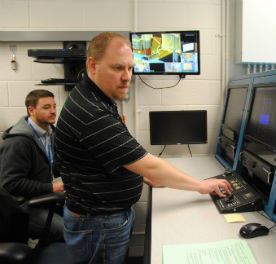Historically, dam failures have caused a stir worldwide. We witnessed Malpasset in France in 1959. On 2 December this arch dam, which impounded a 25M m3 reservoir, collapsed with the loss of 400 lives. On 9 October 1963 the 265m high arch dam at Vajont in Italy was overtopped by a 200m high wave, caused by a landslide at Mount Toc. Nearly 2000 people were killed. Then the failure of the 90m high earthfill Teton dam killed 11 people in Idaho, US on 5 June 1976.
Accidents associated with dams are still an inherent risk of development today but can be minimised by knowledge. Some believe that the Teton failure was a result of not utilising warning technology developed as a consequence of the Malpasset/Vajont accidents. Most importantly, in the long term, these dam failures prompted the development of specialist knowledge in areas such as dam safety and rock mechanics.
The situation we face today concerns the need for a better understanding of the environmental concerns associated with dam developments. The unprecedented attention given to ecological issues makes it imperative that we strive to redefine the role of large dams. Even dams which were considered an environmental success story when they were first built now come under scrutiny. Other issues arise from the changing impacts of dams from a local, to regional and sometimes a global scale. For example, the Iron Gate dam is reported to have caused changes in phytoplankton composition in the Black Sea. This has occurred due to decreased dissolved silica discharged from the Danube, caused by the dam some 1000km away (Nature 27 March 1997). More esoteric examples include changes in the rotation velocity of the globe caused by the water mass of large reservoirs.
In the great dams debate small dams are not always considered to be better than their larger counterparts. Ecosensi-tivity is not only related to large dams or those with hydro production. Smaller structures with small reservoirs and no power generation, such as Oldman dam in Alberta, Canada, are receiving the same attention as large dams.
As dam failures were minimised by increased knowledge, so can the undesired environmental effects of dams. In the search of more knowledge the World Commission on Dams is seeking to redefine the role of large dams on a global scale. It is taking the first step in recognising that technical arguments cannot answer ethical questions and vice versa, unless both are acknowledged and understood by all interested parties. Experience has shown how neglected issues usually return with more complex implications, or more environmental degradation with significant increased costs. The question is how do we acquire such knowledge to alleviate these environmental concerns?
Knowledge
After WCD, an alternative for the future may be a pool of knowledge for dams. One idea could be the establishment of the International Institute for Dam Research. This could be an industry information resource on good practice and experience, enabling the identification of acceptable standards for social and environmental concerns along with basic engineering practice. The development of such an up-to-date knowledge base could be used to meet the different needs of banks, financiers or NGOs. Worldwide there is significant interest in the impacts of hydro development and the latter may be able to provide the necessary missing knowledge to increase the benefits of dams.
The research organisation will encourage technological innovation, as well as trying to find more holistic approaches to balance the development and socio-economic components of the environment. The organisation may evolve to provide regulatory advice to national or multi-national development groups. Ultimately, the dam research institute must search for more equitable benefits for all associated with dams. This will empower communities and all participants in dam development.
The challenge we face after WCD has completed its task is to provide the foun-dations for the permanent synthesis of dam experiences — from inception to decom-missioning. Such a resource will benefit all shareholders in the dam development process. An open research institution could be an effective tool in helping to make dams a better part of society for everyone.
| WCD wants a living document |
| The World Commission on Dams has entered the final and critical phase of its work, with less than six months left before publication of its report. The Commission is determined that the final report becomes a ‘living document’ which is of value to the global community. Chairman Kader Asmal said: ‘From the beginning I have believed that this is not simply a dams commission, but rather a commission about dams and development. Our challenge is to understand how infrastructure such as dams can best reflect the needs and values of the diverse societies they are meant to serve. We are tackling the question of how knowledge, interests, and values determine the context within which dams are either chosen or rejected as the preferred option, and how such decisions can best be negotiated between competing interests.’ According to Asmal, it is becoming clear that the final report will need to tackle various issues such as the effect of dams on indigenous people and the broader issue of competing rights and interests within societies; the state of knowledge of hydro power as a clean energy option; the changing global economy and financial world, and the implications for dam financing; and resettlement both as a development process and as an unresolved legacy in many dam projects. The Commission believes that its goals could be achieved through the WCD Forum – a 70-member advisory body made up of representatives from aid and lending agencies, indigenous people, international associations, social and environmental activists, governments, utilities, research institutes, private sector firms and river basin authorities. The second meeting of the Forum will be held in Cape Town, on 6-7 April 2000. Members will consider the proposal that they become the custodians of the WCD final report. It is hoped that they will take part in the initial launch of the report, ensuring a broad awareness of WCD’s work. ‘Neither human rights nor the right to development can be compromised in our recommendations if we are to offer the world a useful and cogent report,’ said Asmal. |






